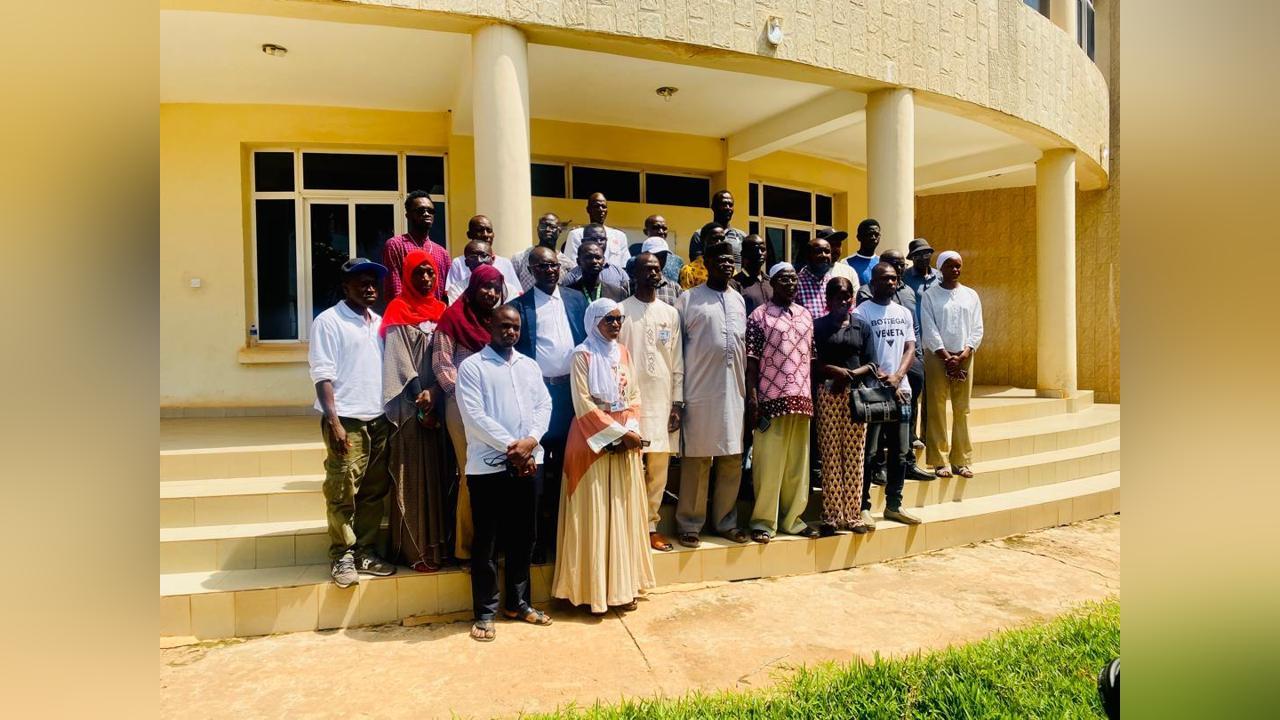Africa-Press – Gambia. In response to the growing number of fuel service stations across The Gambia, the National Environment Agency (NEA) on Tuesday began a vital training for service station operators to boost their capacity on environmental management and emergency response.
The capacity-building session, held at the National Nutrition Agency (NaNA), brought together operators from across the country, including Basse, Jarasoma and Farafenni, to address health, safety and environmental risks linked to petroleum retailing.
Lamin B.J. Samateh, Programme Manager for Environmental Impact Assessment at the NEA, opened the session by highlighting the critical role of the training. He noted that while fuel stations are required to develop Environmental and Social Management Plans (ESMPs) before gaining approvals, implementing these safeguards has remained a challenge for many operators.
“We cannot be doing a trade with safeguard measures guarding that trade, and still be unaware of them,” Mr Samateh told participants. He stressed that every environmental approval issued comes with strict conditions, which operators must know and comply with to avoid posing risks to public health and safety.
Petroleum products are highly flammable, and coupled with congested roads and high temperatures, pose significant threats if mishandled, he warned. “This training will expose you to measures that protect not only you, but everyone around your operations,” he said.
The NEA’s Director of Technical Services Network, Omar Sey, echoed similar concerns, urging participants to share what they learn with colleagues who could not attend. “We cannot operate in silos because we are partners in development. Your role and our role are both key,” Sey said while delivering a statement on behalf of the Executive Director of the NEA.
The training also features inputs from the Gambia Fire and Rescue Service and the Public Utilities Regulatory Authority (PURA), who briefed operators on fire safety, proper use of extinguishers, and regulatory compliance for petroleum products.
Alieu A.B. Kambi, Admin & Finance Officer at Halal Oil and a representative of the Oil Marketing Companies (OMCs), welcomed the training, noting it would help operators understand their responsibilities better and ensure that fuel stations operate in line with national environmental standards. He said the lessons gained would make it easier for OMCs to comply with the NEA’s conditions while safeguarding workers and communities.
Participants were reminded that the NEA would continue its regular monitoring and environmental audits to ensure stations meet all conditions tied to their permits.
At the close of the opening session, organisers and trainees agreed to act as trainers of trainers, extending the lessons beyond the venue to strengthen safe and environmentally sound practices across the sector.
For More News And Analysis About Gambia Follow Africa-Press






